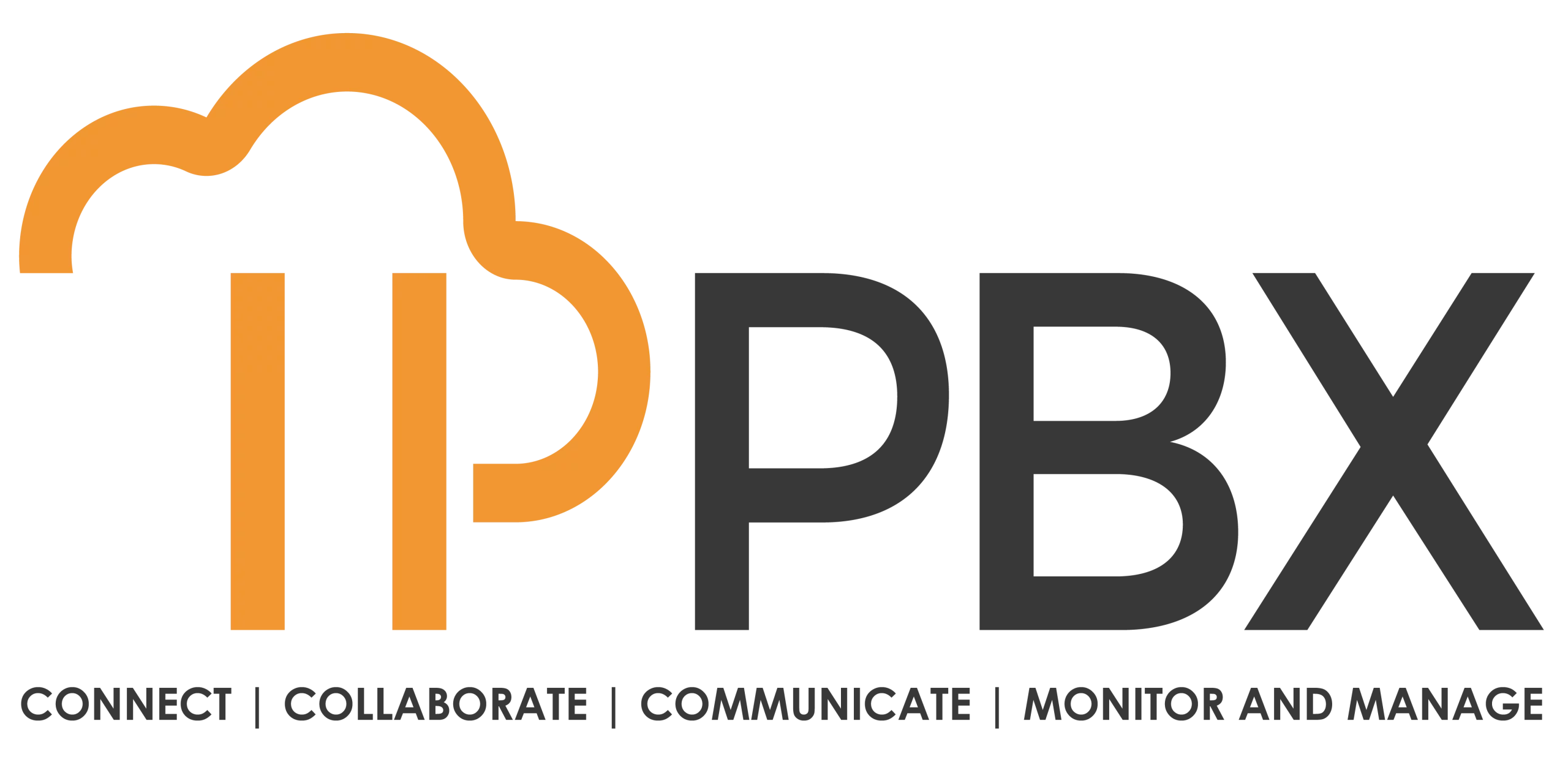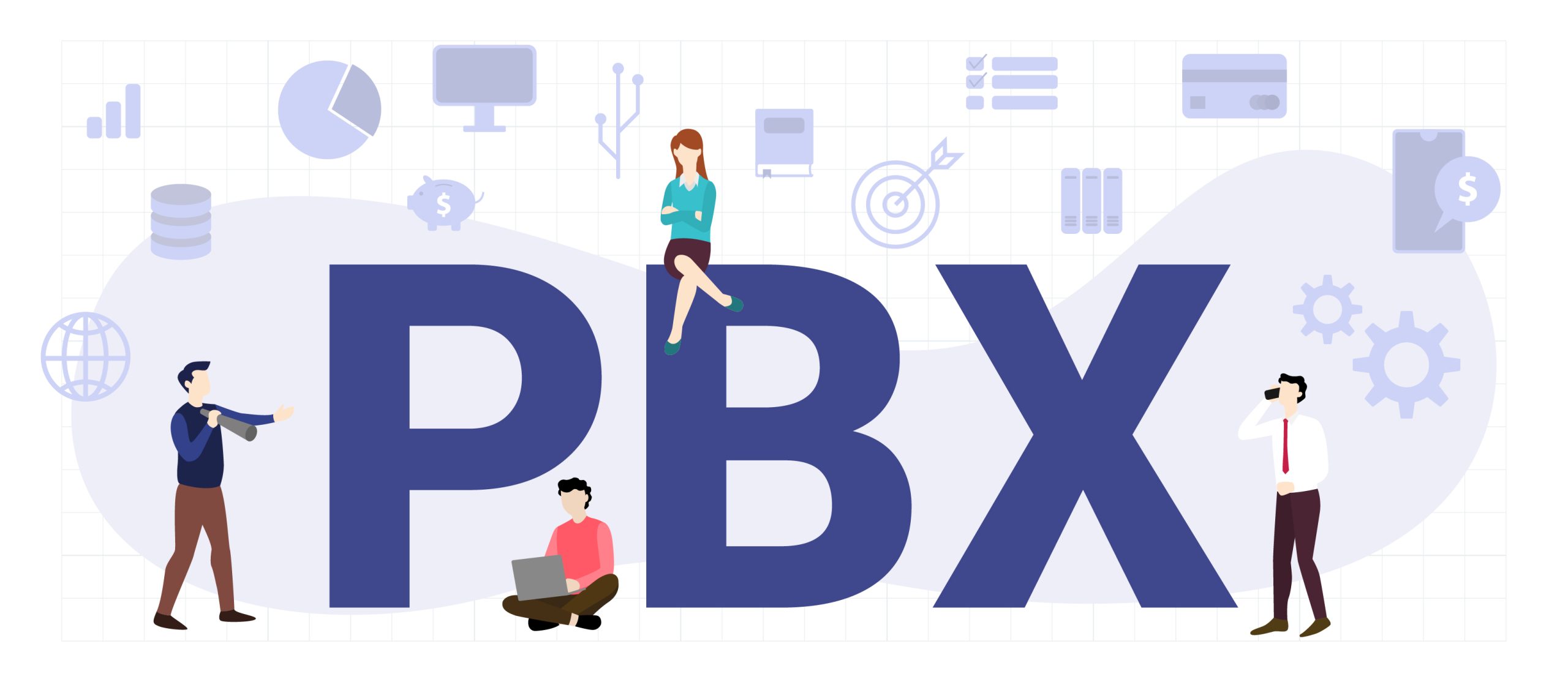IP PBX stands for Internet Protocol Private Branch Exchange, which is a phone system that uses internet protocol to route calls and handle other communications within an organization. Unlike traditional PBX systems, which require physical wires to connect internal and external lines, IP PBX uses internet connectivity to make phone calls, send faxes, and more.
The PBX (Private Branch Exchange) system has been around since the late 1800s and has evolved over time. In the early days, PBX systems were simply switchboards that connected phone lines within an organization. As technology advanced, PBX systems became more sophisticated, offering more advanced features like voicemail, call forwarding, and caller ID.
With the advent of the internet, PBX systems evolved into IP PBX, which uses internet protocol to handle communication. IP PBX offers many benefits over traditional PBX, including lower costs, greater flexibility, and more advanced features.
Advantages of IP PBX Over Traditional PBX
There are several advantages of IP PBX over traditional PBX systems, including:
Cost Savings
IP PBX uses internet connectivity to route calls and other communications, which is generally less expensive than traditional phone lines. Additionally, IP PBX can be hosted on-premises or in the cloud, which can save money on hardware and maintenance costs.
Flexibility and Scalability
IP PBX systems can be easily scaled up or down to accommodate changes in an organization’s size or communication needs. Additionally, IP PBX can be accessed from anywhere with an internet connection, making it easy for remote workers to stay connected.
Advanced Features
IP PBX offers a wide range of advanced features, including voicemail, call recording, conference calling, and integration with CRM systems. These features can help improve productivity and customer service.
Overall, IP PBX is a powerful tool that can help organizations stay connected and communicate more efficiently and effectively.
How IP PBX Works?
Architecture of IP PBX
The architecture of IP PBX is similar to that of traditional PBX, but instead of relying on physical wires and circuits, IP PBX uses the internet to route calls and other communications. The system consists of a central control unit, or call manager, which manages call routing and other communication functions. The call manager is connected to other components of the system, including telephones, gateways, and other devices.
Components of IP PBX
The components of IP PBX include:
Call Manager
The call manager is the heart of the IP PBX system and is responsible for managing call routing, voicemail, and other communication functions.
Telephones
IP PBX uses IP phones, which are connected to the call manager over the internet.
Gateway
A gateway is used to connect IP PBX to the public switched telephone network (PSTN) or other external networks.
Voicemail
IP PBX systems typically include voicemail functionality, which allows users to leave and retrieve voice messages.
Other Devices
IP PBX can be integrated with a variety of other devices, including softphones, conference phones, and fax machines.
SIP Protocol and its Importance in IP PBX
The SIP (Session Initiation Protocol) protocol is a key component of IP PBX and is used to establish and manage communication sessions between devices on the network. SIP is an open standard protocol, which means that it is widely supported by a variety of devices and vendors. This makes it easy to integrate IP PBX with other communication tools, such as video conferencing software or instant messaging applications.
In addition to supporting voice and video communication, SIP can also be used to send instant messages and other types of data. This makes it a versatile and powerful tool for managing communication within an organization.
Features of IP PBX
Basic Features
Call Forwarding
IP PBX allows users to forward incoming calls to another phone number or extension, which can be useful when users are out of the office or unavailable.
Voicemail
IP PBX includes voicemail functionality, which allows callers to leave messages when users are unavailable.
Call Waiting
IP PBX supports call waiting, which alerts users when there is an incoming call while they are already on the phone.
Caller ID
IP PBX supports caller ID, which allows users to see the name and phone number of the caller before answering the call.
Conference Calling
IP PBX allows users to set up conference calls with multiple participants, which can be useful for team meetings or other group discussions.
Advanced features
Auto-attendant: IP PBX can be configured to include an auto-attendant, which greets callers and offers a menu of options to direct their call to the appropriate person or department.
Call Recording
IP PBX can be configured to record calls, which can be useful for training purposes or to ensure compliance with legal requirements.
Interactive Voice Response (IVR)
IP PBX can include an IVR system, which allows users to interact with the phone system using voice commands or touch-tone keypads.
Unified Messaging
IP PBX can integrate with email and other messaging platforms, allowing users to access voicemail, email, and other messages from a single interface.
Integration with CRM
IP PBX can be integrated with customer relationship management (CRM) software, allowing users to access customer information and other relevant data during calls. This can help improve customer service and sales processes.
Benefits of IP PBX
Cost Savings
IP PBX can offer significant cost savings over traditional PBX systems, particularly for businesses with multiple locations. By using the internet to route calls, IP PBX can eliminate long-distance charges and reduce the need for expensive hardware.
Flexibility and Scalability
IP PBX is highly flexible and can be easily scaled up or down to meet the changing needs of a business. New users can be added quickly and easily, and the system can be configured to handle different types of calls and communications.
Remote Access
IP PBX allows users to access the system from anywhere with an internet connection, which can be particularly useful for remote workers or employees who travel frequently.
Enhanced Collaboration
IP PBX can improve collaboration within an organization by making it easy to share information and communicate with colleagues. Features such as conference calling and unified messaging can help streamline communication and improve productivity.
Improved Customer Service
IP PBX can help improve customer service by providing advanced call routing and other features that allow businesses to handle customer calls more efficiently. Integration with CRM software can also help provide agents with access to customer data and other relevant information, allowing them to provide better service.
IP PBX Implementation
On-premise vs. Cloud-based IP PBX
Businesses have two main options when it comes to implementing an IP PBX system: on-premise or cloud-based. On-premise IP PBX involves setting up the system on a physical server on the company’s premises, while cloud-based IP PBX is hosted by a third-party provider and accessed through the internet.
IP PBX setup process:
The setup process for IP PBX can vary depending on the specific system being implemented, but generally involves several steps. These may include configuring the network, installing hardware and software, and setting up user accounts and extensions.
Best Practices for IP PBX Implementation
Some best practices to consider when implementing an IP PBX system include selecting the right provider, ensuring proper network security measures are in place, testing the system thoroughly before deploying it, and providing proper training to users. It’s also important to have a plan in place for handling any potential issues or outages that may occur.
IP PBX Security
Potential Security Risks
IP PBX systems are vulnerable to various security threats, including hacking, viruses, and malware. Attackers can exploit vulnerabilities in the system to gain unauthorized access and steal sensitive information or disrupt the system’s functionality.
Security measures for IP PBX
There are several measures that can be taken to enhance the security of an IP PBX system. These may include using strong passwords, enabling firewalls, using encryption for sensitive data, and implementing intrusion detection and prevention systems. Other measures may include regularly backing up data, limiting access to sensitive information, and implementing security policies and procedures.
Importance of Regular Maintenance and Updates
Regular maintenance and updates are critical for keeping an IP PBX system secure. Updates can help patch vulnerabilities and address security flaws in the system, while regular maintenance can help detect and prevent potential security issues. It’s important to stay up-to-date with the latest security patches and software updates, and to perform regular security audits to identify and address any potential vulnerabilities.
Choosing the Right IP PBX
Factors to Consider
There are several factors to consider when choosing an IP PBX system for your business, including the size and needs of your organization, the level of support you require, the scalability of the system, and the cost. Other factors to consider may include the reliability and reputation of the provider, the features offered, and the ease of use of the system.
Top IP PBX providers
There are many IP PBX providers in the market, each with their own strengths and weaknesses. Some of the top providers include IPPBX, 3CX, Asterisk, Cisco, Avaya, and Mitel. Each provider offers unique features and benefits, so it’s important to do your research to find the right provider for your business.
Cost Comparison
The cost of an IP PBX system can vary widely depending on the provider and the features included. Some providers offer low-cost or even free options, while others may charge a significant amount for more advanced features and support. When comparing costs, it’s important to consider the long-term value of the system, including the potential cost savings and productivity gains that can be achieved.
Why to Choose IPPBX?
Is your business ready to upgrade its communication system to the next level? Look no further than IPPBX! Our all-in-one solution is designed to meet the needs of businesses of all sizes. With unlimited calls and secure communication options, our system offers a reliable and efficient way to communicate with your team, clients, and partners.
Our IPPBX system provides a range of features that can streamline your operations and improve collaboration with your team. With our user-friendly interface, you can easily manage calls, voicemails, and other communication tasks. Our auto-attendant feature ensures that your calls are always answered promptly, while our call recording and unified messaging features allow you to stay on top of important conversations and messages.
Don’t settle for less when it comes to your business communications. Choose IPPBX and experience the power of an advanced IP PBX system. Our system is designed with your needs in mind, offering a cost-effective and scalable solution that can grow with your business. Whether you’re a small start-up or a large enterprise, our system can help you stay connected and productive.
Contact us today to learn more about our IPPBX solution and how it can benefit your business. Our team of experts is always on hand to answer any questions you may have and help you get started. Let us help you take your business communications to the next level – choose IPPBX today!






